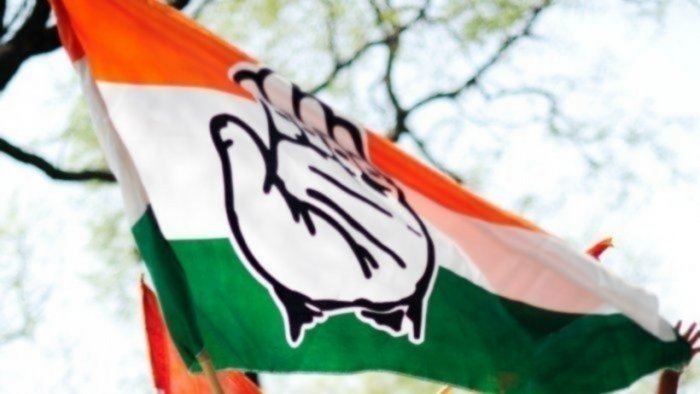Will the public be able to meet the party leaders easily in the new five-star headquarters?
New Delhi: What do we see in the country today? There is strife and unpleasant competition among parties. Parties are competing to belittle each other by displaying posters, waving flags, taking out processions and holding public meetings in order to get public attention and support. But this creates animosity among the people. Such fights impede the progress of the country.
When parties fight each other, the public looks at it as a cockfight. But such fights cannot solve any important problem. This is not said by any ruling leader or a great sociologist of today, but Bharat Ratna K. Kamaraj, the then president of Congress, who played the most important role in making Lal Bahadur Shastri and Indira Gandhi the Prime Minister. He said this in his speech in 1967, but this may be more applicable in the present times.
The Kamaraj Plan, which is mentioned again and again in politics, emphasised the fact that the only reason for the defeat of Congress was weak leadership and lack of dedicated workers at the district and rural level. Kamaraj had stubbornly left the post of Chief Minister of Tamil Nadu for the sake of the organization. It even happened that Prime Minister Jawaharlal Nehru offered to resign. Later, under the rule of Indira Gandhi, senior ministers resigned under this plan. Kamaraj always raised his voice against the pomp, luxury, bungalows and cars of political parties, leaders and workers. Due to similar arguments, from 1947 to 1985, Congress did not make any billing for its headquarters.
But with the division of the Congress party, the name of the headquarters was changed. But many government bungalows in the capital Delhi kept getting encroached on, and land plots kept getting given at concessional rates. First Jawahar Bhawan was built, but later it became Rajiv Gandhi Pratishthan. Now the Congress is in a very weak condition, so in a way, after 138 years, the luxurious building built by itself is being made the headquarters of the Congress party.
7 Jantar Mantar in Delhi was the headquarters of Congress since 1947. Mahatma Gandhi, Nehru, Sardar Patel also used to come there. It was here that Indira Gandhi was elected Congress president in 1959. When Congress split in 1969, Indira Gandhi’s Congress shifted to 5 Rajendra Prasad Road. The party was run from here during the tenure of Jagjivan Ram, Dr Shankar Dayal Sharma, Devkant Barua, Brahmanand Reddy.
When Reddy expelled Indira Gandhi in 1978, the headquarters of Indira Congress shifted to 24 Akbar Road. Actually this bungalow was allotted to G. Venkatswamy, Rajya Sabha member of Congress from Andhra Pradesh in 1978. Congress was not in power then. Indira Gandhi and Sanjay Gandhi had also lost the Lok Sabha elections in 1977. Then this 24 Akbar Road was made the temporary and then permanent headquarters of Congress. At one time 24 Akbar Road was called Burma House. This bungalow was allotted as official residence to the ambassador of Myanmar (formerly Burma) in India. On the instructions of Prime Minister Jawaharlal Nehru, 24 Akbar Road was called Burma House.
7 Jantar Mantar was also the headquarters of Janata Dal United and All India Seva Dal, which was founded by Morarji Desai. After the Congress split, 7 Jantar Mantar was occupied by Congress (O). Congress (O) later merged with Janata Party. Now a part of it is occupied by Sardar Patel Memorial Trust, Janata Dal (U) and journalists’ organization National Union of Journalists. Even when Indira Congress returned to power in 1980, Indira Gandhi did not claim 7 Jantar Mantar. She said that an organization can remain powerful not by the building but by the strength of its workers.
Anyway, during Congress rule, many government bungalows were allotted to various party organizations like Youth Congress, Seva Dal, Mahila Congress, INTUC etc. To build the headquarters, land was first found on Raisina Road and a grand Jawahar Bhawan was built. Another land was found on Deen Dayal Upadhyay Marg, and during their rule, Sonia Gandhi and Dr Manmohan Singh laid the foundation stone for a building there.
Now, after 15 years, on 15 January, considering it to be the right moment, Sonia Gandhi, Rahul Gandhi and Mallikarjun Kharge will inaugurate the 6-storey modern headquarters equipped with all facilities. Still, some leaders have said that they will not vacate the old bungalows. The interesting thing is that a few years ago, the Supreme Court has given the decision that political parties should vacate government bungalows. But not only Congress and BJP, some other parties too are keeping these with them in the name of their affiliated organizations.
The second interesting thing is that it is a matter of pride for BJP that its office
As such, Rahul Gandhi’s grandfather Firoz Gandhi’s name is no longer taken in Congress.
Congress is inaugurating a building named after Indira Gandhi with much fanfare for the Delhi Assembly elections—Indira Gandhi, who during her tenure as President and Prime Minister, gave importance to the principle of control of urban income and property and nationalization of bank insurance companies in her ten-point program.
Will Rahul Gandhi run a campaign to get public support in Delhi or other parts of the country on the same principle? Not only Congress workers of the states, but even leaders, due to the huge obstacles in meeting Rahul Gandhi for years, remind him of the tradition of regularly meeting common people in the Indira era. Even now, Sonia and Rahul Gandhi’s rooms at 24 Akbar Road are opened occasionally. Will the public be able to meet leaders easily in the new five-star headquarters?

